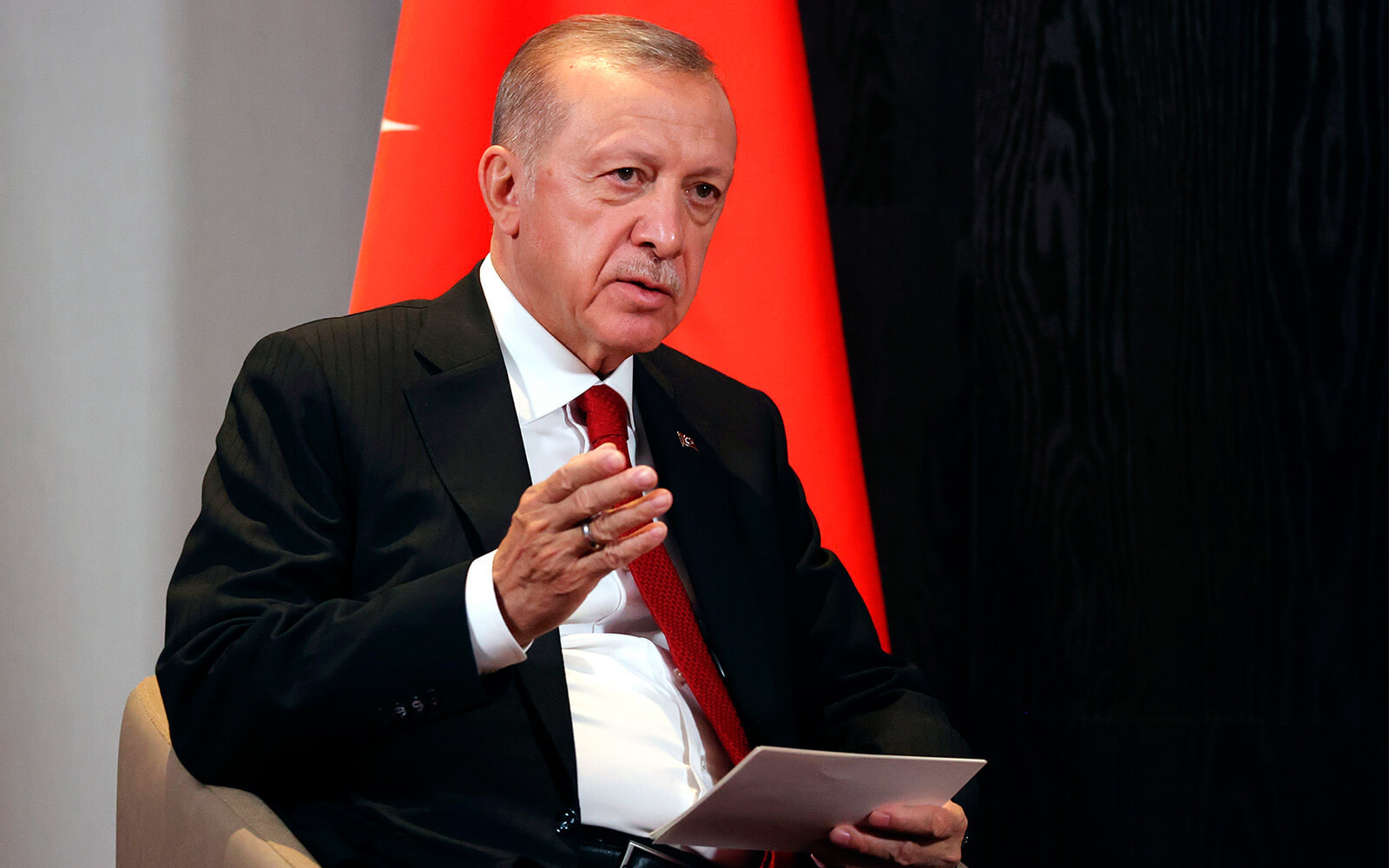On Tuesday, during his address 77th United Nations General Assembly, Turkish President Recep Tayyip Erdoğan said India and Pakistan’s failure to foster “strong peace and cooperation” in their 75 years of independence is the reason behind the absence of “just and lasting peace and tranquillity” in Kashmir.
Though Erdoğan appeared to suggest that the fault lies with both sides, he has in the past repeatedly voiced his support for Pakistan’s position on the Kashmir dispute in independent press conferences, bilateral meetings, and multilateral fora by calling on India to adhere to a 1948 United Nations (UN) resolution to establish a joint commission with Pakistan and a third country to determine the future of Kashmir.
Turkiye President Erdogan hopes for "permanent peace" in Kashmir as he hyphenates India Pakistan during his UNGA address. https://t.co/ou26Rf0Yui pic.twitter.com/GWd4m93RAw
— Sidhant Sibal (@sidhant) September 20, 2022
During a meeting with Pakistani Prime Minister (PM) Shehbaz Sharif in June, Erdoğan said the despite is a “matter of critical importance in terms of regional peace and stability” and stressed any resolution of the issue should be in line “with the legitimate expectations of our brothers and sisters in Kashmir and within the framework of the UN resolutions.”
Similarly, he told Sharif’s predecessor Imran Khan back in February 2020 that “the issue of Kashmir is as close to us as it is to you.”
The Turkish leader has also time and again echoed Pakistan’s criticism of India’s unilateral decision to revoke Article 370 of the Indian Constitution, which awarded Jammu and Kashmir special status.
In fact, during his UNGA address last year, Erdoğan said India’s decision had “further complicated the problem”.
Keeping this in mind, Sharif has said that “Pakistan and Turkey support each other on all issues of core national interest— whether it is Jammu and Kashmir or Northern Cyprus.”
New Delhi maintains that international resolutions are irrelevant, pointing to the 1972 Simla Agreement between India and Pakistan, which affirms that the Kashmir dispute is a bilateral issue that does not require any third-party involvement.
Furthermore, back in August 2020, Hindustan Times published an article quoting a senior government official who alleged that New Delhi is growing wary of Turkey’s increasing “anti-India activities” and is reportedly being considered as an enemy “next only to Pakistan”. The article claimed that Turkey has also been inviting radicalized Indians and Kashmiris for training sessions.
Cumhurbaşkanı @RTErdogan ile görüştük ve halklarımızın menfaati için ekonomik ilişkileri derinleştirecek yollar dahil Hindistan ve Türkiye arasındaki tüm ikili ilişkileri gözden geçirdik. pic.twitter.com/959rwatEFG
— Narendra Modi (@narendramodi) September 16, 2022
Despite these tensions, however, Erdoğan met with Indian PM Narendra Modi on the sidelines of the Shanghai Cooperation Organisation Summer in Samarkand last week. The two leaders agreed to step up trade ties and also stressed the need to “maintain regular contact” to resolve bilateral issues and advance regional security and prosperity.
On Tuesday, Indian External Affairs Minister S. Jaishankar also met with his Turkish counterpart Mevlüt Çavuşoğlu wherein the pair discussed several issues, including food security and the ongoing Cyprus conflict with Greece.
During his UNGA address this week, Erdoğan also reiterated his support for Pakistan’s recovery from the “extremely difficult times” caused by the “recent flood disaster.” He said that Turkey had already dispatched humanitarian aid “without interruption” and called on the international community to do the same.

